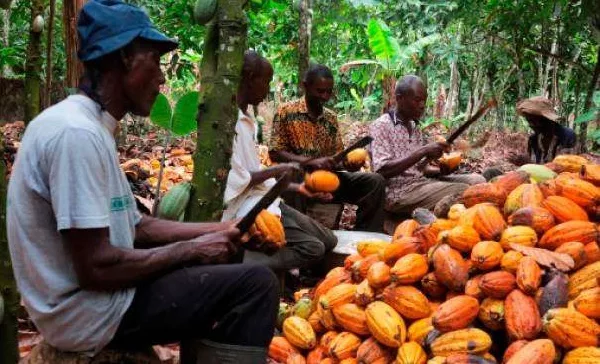Ecuador, Galamsey, and China Emerge as Triple Threats to Ghana’s Cocoa Future

Ghana’s world-famous cocoa industry—the backbone of its agricultural exports—is facing unprecedented threats from three powerful fronts: Ecuador’s rising dominance, China’s growing production, and illegal mining (galamsey) ravaging farmlands across the country.
Ecuador’s Rapid Rise
Ecuador has quietly overtaken Ghana as the world’s second-largest cocoa producer, narrowing the global gap with Ivory Coast. With state-supported expansion, high-yield hybrid beans, and aggressive export incentives, Ecuador’s production now exceeds 470,000 metric tons annually—compared to Ghana’s 360,000 tons in the 2023/24 crop year. Analysts warn that the South American nation’s growing market share is shifting global prices and buyer attention away from West Africa.
China’s Surprising Entry
China, once unthinkable as a cocoa grower, is now producing significant quantities in Hainan Province with support from state-backed research institutions. The country has already exported its first batches of cocoa beans to Europe. Experts fear China’s entry could reshape global cocoa supply chains, particularly as its government channels billions into modern agritech and export infrastructure.
Galamsey: The Homegrown Menace
Back home, Ghana’s cocoa farms are under siege from illegal mining (galamsey), which has destroyed thousands of hectares of fertile farmland. Heavy metals like mercury and arsenic are poisoning soil and water, threatening both cocoa trees and rural livelihoods. The Ghana Cocoa Board (COCOBOD) warns that if the pace continues, Ghana could lose up to 30% of its arable cocoa land by 2030.
Experts Sound Alarm
Agronomists and trade experts argue that Ghana needs urgent re-investment in replanting programs, youth involvement in cocoa farming, and stronger enforcement against land encroachment.
“Ecuador and China are economic threats, but galamsey is an existential one,” says Dr. Isaac Adjei, an agricultural economist. “If we don’t act decisively, Ghana could lose its global cocoa leadership within a decade.”
The Way Forward
To remain competitive, Ghana must modernize cocoa production, enforce strict anti-mining laws, and expand into value-addition such as chocolate and confectionery exports. Without swift action, experts warn, the “golden bean” that once defined Ghana’s prosperity may become its next casualty.
www.nsemgh.com

